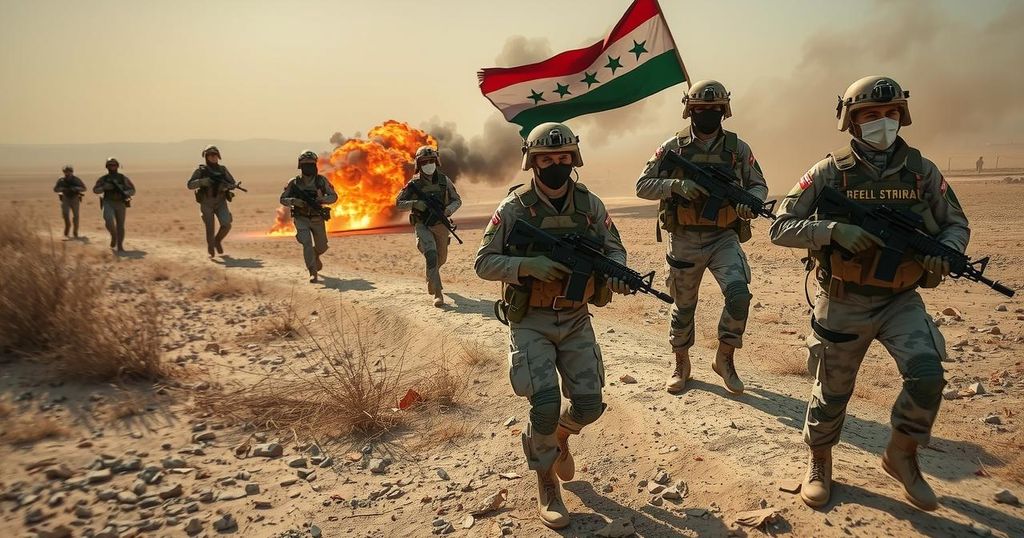The Syrian conflict has intensified following the Hamas attacks on Israel, with rebel groups, particularly Hayat Tahrir al-Sham (HTS), achieving significant territorial gains against the Assad regime. While the regime has struggled to maintain control, it still holds considerable support among certain Syrians. International concerns are rising regarding the implications of renewed fighting, emphasizing the urgency for a political solution to address the underlying issues.
The ongoing conflict in Syria has reignited significantly following the wave of unrest in the Middle East prompted by the Hamas attacks on Israel on October 7, 2022. These events disrupted the regional status quo, leading to escalated tensions and a resurgence of fighting in Syria. Since the civil war began a decade ago, President Bashar al-Assad’s regime has managed to endure largely due to his willingness to use extreme measures to preserve his power while relying heavily on allies such as Russia and Iran.
While the Assad regime has maintained control over several major urban areas, recent advancements by the rebel coalition led by Hayat Tahrir al-Sham (HTS) demonstrate a startling shift in the conflict dynamics. Since late November, the HTS has seized strategic locations, including the historic citadel of Aleppo, as they press further into territory once dominated by government forces. This offensive has reportedly captured considerable military hardware, which has bolstered the rebels’ capabilities.
Despite these developments, it is crucial not to underestimate the resilience of the Assad regime. The Syrian President retains significant support among certain demographics, many of whom consider him a stabilizing force in contrast to jihadist factions that threaten civilian safety. There is also an ongoing concern about the regional implications of the renewed conflict, as evidenced by the international response from the United Nations indicating that the situation poses substantial risks to both civilian populations and regional stability.
The HTS, while retaining its extremist roots, has sought to cultivate broader support by reframing its objectives in less jihadist terms. This strategy reflects an understanding of the complexities of public sentiment in Syria, where violent ideologies much inspired apprehension among a populace weary from years of conflict. As HTS continues its military offensive under the banner of “Operation Repelling the Aggression,” the potential for further escalations remains a pressing concern for both Syria and the international community.
The Syrian civil war, which erupted in 2011, has persisted in various forms, exacerbated by regional and international turbulence resulting from events such as the 2022 Hamas attacks on Israel. The longevity of the conflict can be attributed to Bashar al-Assad’s strategies of consolidating power through ruthless measures and leveraging international alliances. The evolving landscape of Syrian factions and their shifting allegiances continues to complicate efforts for peace, particularly under the auspices of international resolutions aiming to establish a framework for political transition.
The recent resurgence of rebel offensives in Syria signifies a potential turning point in the long-standing conflict. Despite the territorial gains made by groups such as Hayat Tahrir al-Sham, President Bashar al-Assad’s regime remains formidable, bolstered by a support base that fears the implications of a jihadist-dominated uprising. The international community, particularly the United Nations, underscores the need for a political resolution to avert further humanitarian crises. As the battle for Syria continues, the stakes for both regional and global security remain profoundly high.
Original Source: www.bbc.co.uk






